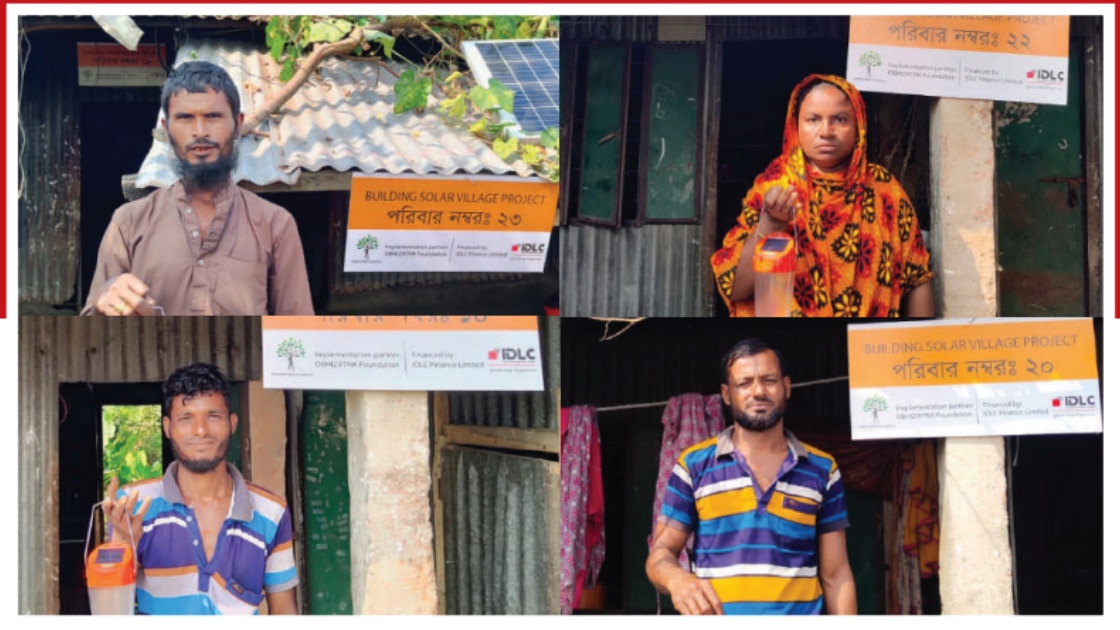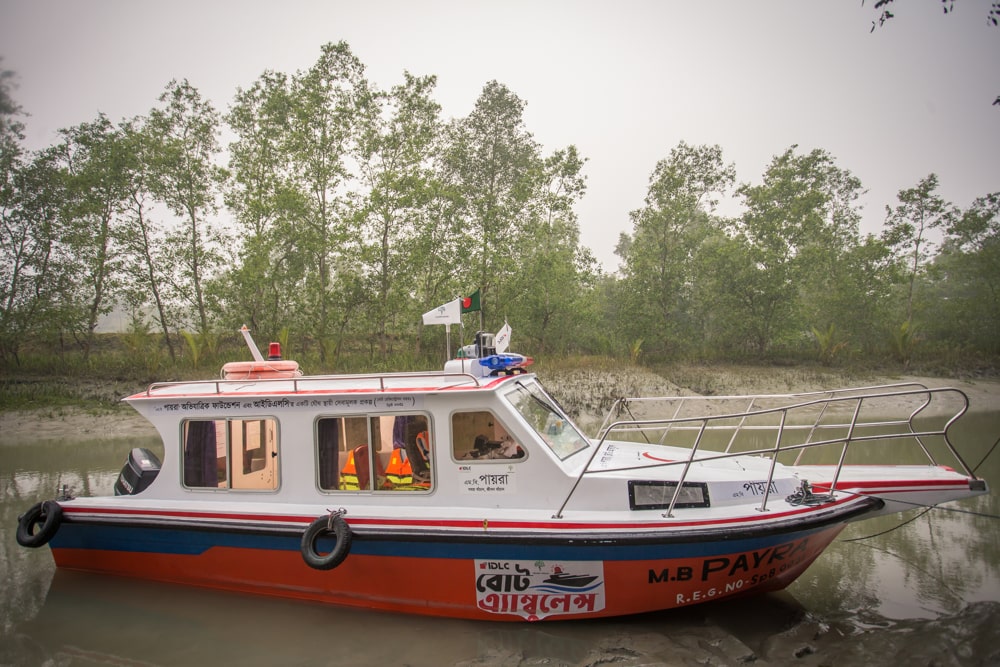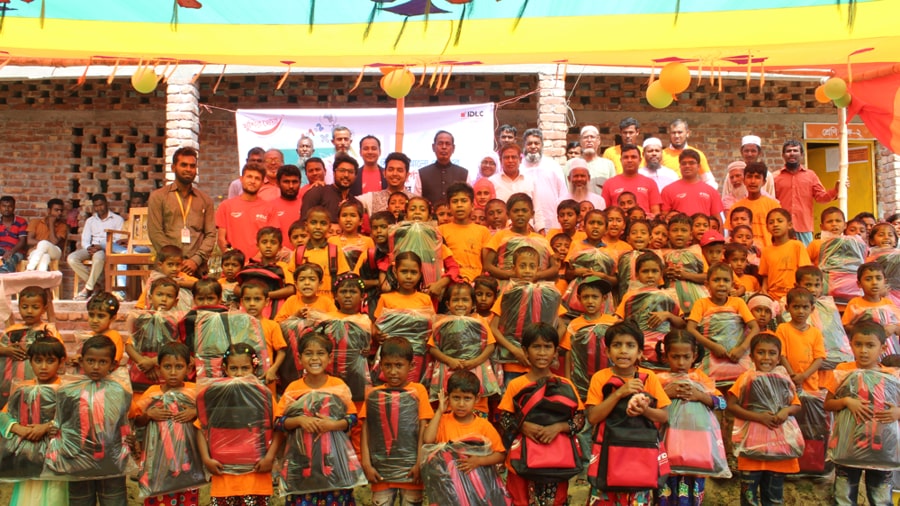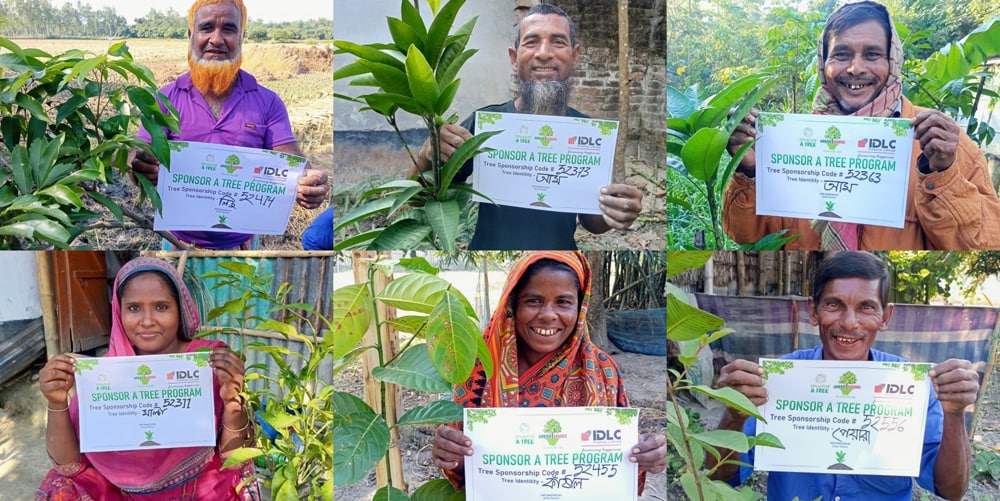
Corporate Social Responsibility (CSR) evolved from the concept of corporate giving over the past few decades. While the concept has existed for a long time, the practice is the same all over the world, including in Bangladesh. The idea is relatively old school at its core and to some extent, originates in response to the idea we call the Friedman Doctrine where the purpose of businesses is to maximize shareholder value. If a business only exists to maximize shareholder value then what about the society and environment where it operates? This is the birthplace of the concept of corporate social responsibility. Outside of your core operation, you spend for the society where you function. However, the concept of CSR has evolved over the last decade and has become a core part of how companies operate.
Giving, however, is a fundamentally tricky question. With the idea of giving, the question comes where to give and how to give. These are legitimate questions as there are causes that are more important than others and there are ways of giving that can maximize the impact of your giving. Hence giving to causes that can generate long-term impact and address problems at their core is a far superior approach than otherwise. To that end, effective giving should be a priority for every corporation in regard to its CSR activities.
The road to hell is paved with good intention, they say. Companies do spend a lot of money doing social good in the form of CSR with genuinely good intentions. But rarely do they think about how to do it better. Effective giving is rarely a question in the CSR industry. But a minor difference in strategy in implementing your CSR can go a long way and generate an outsized return on your CSR spending.
This is where IDLC, the largest NBFI of the country, offers an interesting example of effective giving. Over the years, the company has designed a non-conventional approach to its CSR and Sustainability initiatives.
In this article, we look into how IDLC’s CSR program works and what we can learn from the company about effective giving.
First a little bit of background.
IDLC started its journey in 1985 with a team of 5 people. It has since played an important role in transforming the financial industry in Bangladesh. The company has also been an active player in the excellent growth story of Bangladesh. Today, IDLC is the largest multi-product, multi-segment non-banking financial institution in the country with a team of over 1,500 employees, serving more than 45,000 clients in 24 plus cities in Bangladesh.
IDLC has built a name as an excellent financial brand — an impeccable track record and consistently brilliant business performance. It has also played a pioneering role in introducing a long list of high-impact financial products over the years.
Over the years, IDLC has also developed a strong mandate and philosophy of giving back to society. The company has a robust CSR program that supports some of the most impactful CSR initiatives in the country. A unique program in both operation and ambition. The company has brought the same rigor, inventiveness, thoughtfulness, and long-term thinking that it uses in its business to give back to society directly through its social responsibility and sustainability initiatives.
Similar to its financial products, IDLC has over the years developed a distinct philosophy of corporate social responsibility. The company looks for CSR initiatives that are sustainable and long-term oriented. Unlike many similar programs, IDLC takes a hands-on approach to its CSR initiatives. Its CSR and marketing team get involved with the partners to ensure smooth execution and drive results.
Using the CSR guideline of Bangladesh Bank as the guiding principle, IDLC has been focusing on three sectors for its CSR initiatives: health, education, and environment and disaster management.
IDLC has been a socially responsible brand since its inception. Its range of products and operational style make it visible. The company, however, formally expanded its CSR initiative in 2016 with a focus on sustainability and emergency response. The program has since evolved and expanded.
IDLC works with partners chosen through a rigorous selection process. Evaluation begins with an assessment of the impact of the project on the area it is proposed for. The company then evaluates the partner, its reputation in the areas where it operates, how people of that area perceive the partner, etc. After the initial selection, projects go to the management for evaluation and approval. If the project exceeds a certain value, it goes to the board for final approval. Once approved, an MoU is signed with the partner to proceed.
While many companies take a passive approach to CSR projects, IDLC works with its partners from start to finish, regularly monitors progress, and follows up with the partners, even several years after the completion of the projects.

IDLC invests in local communities across Bangladesh, reaching some of the most vulnerable segments of society, and addressing some of their most pressing needs. It has supported initiatives across economic empowerment, improving access to healthcare, education, financial literacy, and interventions to tackle climate change and sustainability.
While some organizations choose high visibility, ad-hoc or short-term strategies in their CSR approach, IDLC uses a long-term, impactful perspective. It often invests in projects that go on for multiple years.
A good example of this is the IDLC Boat Ambulance. In 2019, IDLC donated a boat ambulance for the people of the Rangabali Upozilla of Patuakhali to provide a 24/7 ambulance service to those residing in the several disconnected chars of the area. Although the project started in 2019, the company still follows up with the implementing partner and takes quarterly reports of the project. As a result of this incessant drive to improve the long-term benefits of the project, during the COVID-19 pandemic, the boat was also used to deliver vaccines to the area. The company has also assigned one health worker in each of the five chars for emergency healthcare services.
After Cyclone Amphan, the boat ambulance distributed relief among the local people of that area. It was also briefly relocated to Sylhet, where it was used to distribute relief among the flood victims of Sylhet.
Education is one of the key sectors IDLC dedicates its attention and resources to. The company runs several fascinating initiatives in education. A scholarship program named Oditiya supports first-of-the-family undergrad female students coming from underprivileged backgrounds. Founded in 2017, the program provides scholarships to 10 students of the Asian University for Women each year.
In partnership with CRP, IDLC has been providing nursing scholarships to 15 girls for 4 years. It has a similar partnership with AYAT College of Nursing and Health Sciences, where it provides 10 female students a 4-year long nursing scholarship. 5 students from the Banking and Finance Department of the University of Dhaka also receive scholarships from the company.
Long-term thinking has played a key role in designing the program. The company says it has invested resources and time to understand the most impactful intervention for girls' education in Bangladesh and found that intervening when a girl is going for higher studies is the best time to support her. The company has been supporting undergrad female students since 2017.
IDLC takes a markedly different approach with the scholarship. Unlike many similar initiatives, it rarely promotes its scholarship programs. It has adopted a distributed approach, supporting many students from different institutions and disciplines. The company says “we do it for the good of society, as a result, you may not hear about these scholarships. We want to invest more in our beneficiaries, and less in publicity.”

Financial literacy remains a key challenge toward financial inclusion and individual and collective wealth creation in Bangladesh, more so for young people. In our society, money remains a taboo subject: everyone wants money but talking about money, however, is considered something degrading in our culture. Parents don’t talk about money and financial management with their children. There is little presence of personal finance management in our education curriculum. This creates a real disadvantage for young people as they enter the real world.
Understanding money and being able to manage money well is a critical life skill. IDLC believes that financial brands should come forward to create awareness about personal finance. To that end, the company has been running a program called the Finance Olympiad with the goal to impart personal financial literacy to young people between the age of 14 to 24. Launched in 2018, the program has reached several thousand young people from across the country and will take place for the 3rd time this year.
The company has developed a practical curriculum in collaboration with its partner, 10 Minute School. The company believes that without financial literacy it is hard to change the economic condition of people. IDLC says it aims to contribute to building a financially literate young generation in Bangladesh.
IDLC has been supporting several transformative initiatives in the healthcare sector. The company has donated a neonatal ventilator to the Matuail Institute of Child and Maternity Health and built a Kangaroo Mother Care corner. Kangaroo mother care, a method of care for pre-term infants, involves infants being carried, usually by the mother, with skin-to-skin contact. The company is also building a residential room for the patient attendants in the hospital so that people who come to the hospital from distant places can stay in the hospital.
Tea garden workers in Sylhet live in despicable conditions. Recent events involving tea garden workers have made it even more glaring. There is scant healthcare access in most of the tea gardens in the country. Although the law says that there has to be at latest one health center in every tea garden for the workers, unfortunately, most of the health centers are dysfunctional. IDLC joined hands with UNICEF to support a project to improve access to maternal and neonatal health for the workers of 20 tea gardens in the Sylhet region. IDLC has funded seven tea garden health centers along with all the equipment necessary for maternal and neonatal health.

Environment and sustainability have been a key focus of IDLC’s CSR initiatives. Over the years, the company has taken several impactful initiatives. Almost all of its projects address core sustainability issues such as solar energy, pure drinking water, etc while also serving the critical needs of communities.
For instance, IDLC has initiated a project to build a solar village in Latarchar, Patuakhali. The company has taken a phase-by-phase development initiative. Last year, it donated solar panels to 25 households and plans to do more in the coming years.
IDLC has also been working to address pure drinking water challenges in a number of coastal areas. Drinking water is a serious problem in many coastal areas in Bangladesh where the salinity of the water is too high. IDLC has been building a water filtration system for the people living in the coastal areas.
The company has also been supporting a rainwater harvesting project in partnership with SAJIDA Foundation. Two water purifiers have already been built in the Dacope Upazila between 2019 and 2020. Two more are under development in two other areas.
On average, IDLC runs 10-12 CSR projects every year. Since the company takes a long-term view of things, there are always ongoing CSR initiatives from previous years. For instance, of the projects currently running, five of them have been running for a few years.
A dedicated team runs its CSR initiatives in collaboration with its marketing team. IDLC publishes an annual sustainability report illustrating its various initiatives and views on sustainability.
CSR as a sector has evolved in Bangladesh over the last few years. “When we started working, the sector was mostly in its early days,” says Farhana Sharmin, Head of CSR at IDLC. “The sector has since evolved. Most companies now have dedicated CSR teams and structures and processes in place to run their CSR operations.”
Ms. Sharmin suggests when designing CSR initiatives, one should focus on the pressing needs of society. “We first identify the areas where CSR projects can make long-term impacts before taking on a project”, she adds.
In the early days, many people used to call CSR corporate fig leaf. It was an outside-in approach, mostly aimed at public relations functions. That, however, has changed. Today, companies are looking to find approaches to integrate the ethos of CSR and sustainability into their entire operation. We have seen the rise of concepts like Environment, Sustainability, and Governance (ESG) over the years where sustainability and good governance are becoming how companies operate.
Ms. Sharmin explains it as one of the major transformations in the sector over the years. “The current perspective of CSR as some philanthropic initiatives is changing,” says Ms. Sharmin. “We need to integrate the idea of CSR into the business. As an explanation she offers an example: to save the environment, planting trees alone is not enough. You also need to make sure that your business is not harming the environment in any way. Business practices should become sustainable. Giving scholarships to female students is not enough. As a company, you should offer employment opportunities to female graduates.”
To that end, IDLC has announced several mandates around sustainability, responsible business culture, employee-friendly practices, and increasing women's participation in its workforce among others. The company announced in last year's Annual Sustainability Report that it aims to take its female employee base to 20% in the next few years.
There are examples of CSR initiatives where companies support disabilities. Ms. Sharmin suggests the approach should also include the employment of people with disabilities in companies. CSR in the past was viewed as an approach to offset corporate negative impacts. It no longer applies.
“We’re entering into an age of conscious consumerism where consumers want to purchase products of companies that they believe are ethical, practice sustainability, and care about people,” says Ahamed Najeeb Rahman, Head of Brands at IDLC. “Companies that are aware of this shift in the market stand to win in the coming days.”
It appears IDLC has already embraced the change. The company writes in its past year's sustainability report: “We are committed to sustainable development by creating long-term value – value for our stakeholders, value for the environment, and value for the community. IDLC is a signatory to a few local and international initiatives promoting sustainable business practices to CSR activities including UNGC (United Nations Global Compact), UNEP FI (United Nations Environment Programme Finance Initiative), and CSR Centre. Although these initiatives are voluntary in nature, compliance is mandatory as per globally acceptable standards pertaining to CSR.”
For 36 years, IDLC has been financing happiness in Bangladesh. The company has made a name as an organization that practices sustainability across its operations, supports businesses that practice sustainability, and is socially responsible. Through its innovative financial products and services, the company has helped create economic opportunities for people and contributed to the economy of the country. As Bangladesh prepares for its next juncture, IDLC says it is ever ready to be a force for the progress and prosperity of the country.
